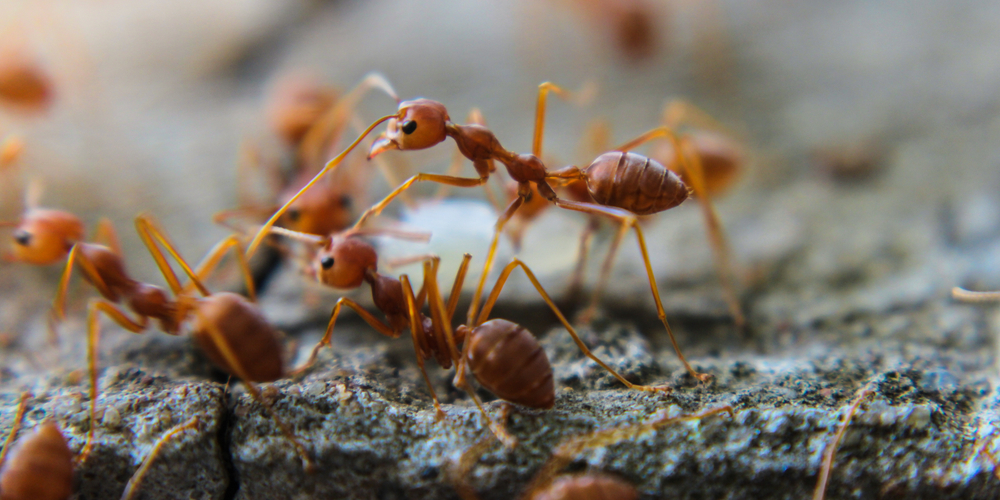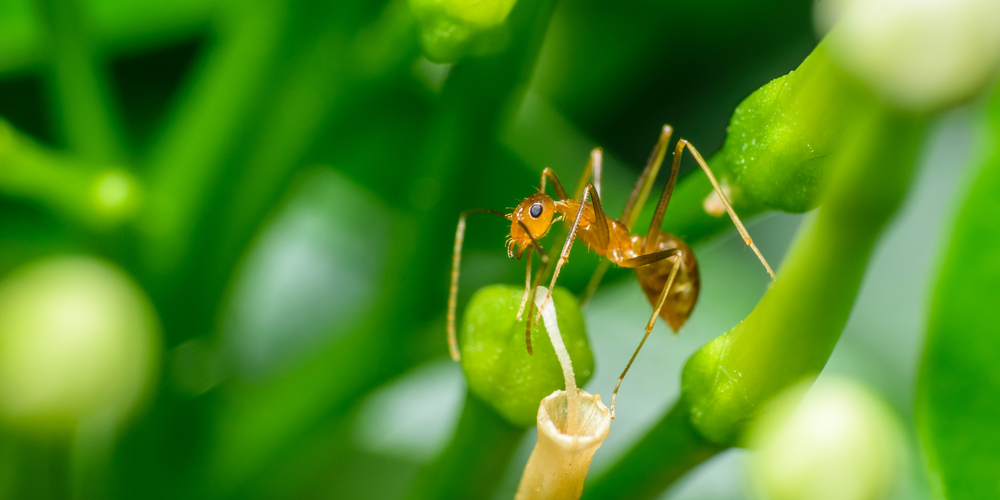Keeping a healthy garden also involves removing pests that might invade it. Despite not being dangerous, having an ant infestation in your yard can cause some issues.
To begin with, it may alter your garden’s aesthetics and damage your turf. So, remove ants as soon as possible to prevent them from spreading to your garden and control their presence.
To make your life easier, we collected all the information you must know about dealing with an ant infestation in your yard. Here, you’ll find the best tips and tricks to remove them from your garden.
What To Do When You Have Ants in Your Yard?
Ants are not necessarily harmful to your yard. In limited numbers, they help control other pests’ populations and contribute to aerating and enriching the soil.
However, they might cause damage to your garden when they get comfortable around your property. Also, while most ants won’t bite you, they might harm your lawn and cause unattractive dead patches. Keep in mind that the severity of the issue will depend on the ant species that got to your yard.
For instance, carpenter ants might even create structural damage to your property! Ensure you take prompt action when you have them around. Also, ants might build hills which can pose a tripping hazard and make mowing more challenging.
The first thing you must do when you have ants in your yard is to identify their nests. You might have to spend some time looking as it isn’t an easy task. Usually, you’ll find them around damp areas. They like to build their nests in well-drained soil in undisturbed parts of your yard (preferably with little or no foot traffic).
We recommend you start controlling ants with natural methods before getting your hands on pesticides. After all, chemical products might damage other plants and even beneficial insects. Learn more about controlling ants in the following sections.
Getting Rid of Ants From Your Lawn
If you have some mounds around your lawn, try raking them out. Doing so will “ruin” all the jobs ants have carried out and reduce the occurrence of hills without harming the ants’ population. However, for this method to be effective, you must do it at least once a week.
Alternatively, you can try spraying your lawn with a solution of dish soap water. You can pour the mixture into the ant nest you identified to eliminate the entire colony.
Don’t forget to repeat the treatment regularly to control the ants population in your garden. If you don’t want to kill the ants (since they can benefit your garden), you can always spray the affected areas with vinegar.
This product won’t cause their death but will disturb the insects’ pheromones (which they use to communicate with each other). In turn, it will encourage them to find another place to live other than your garden.
You can also apply Diatomaceous Earth around your house foundations and ants nests to remove these insects from your property.
This mixture includes microscopic crushed fossils that will damage the bugs’ exoskeletons and cause dehydration and death in the insects. Such a solution is safe to use around humans and animals and won’t harm your plants.
Alternatively, you can try drowning the ants in your garden using a water hose. Be patient: you might have to keep the water running for about 30 minutes to be effective with this method. Also, you will have to repeat it after 24 hours to maximize your chances of removing ants.
Can You Prevent Ants from Getting into Your Yard?
Now that you know how to get rid of ants, you probably are curious to learn how you can prevent them from getting to your garden in the first place. As we mentioned, ants aren’t necessarily harmful when they are not “invading” your yard.
However, you can create a barrier using natural repellents to push them to choose other locations for their nests. For instance, you can spray vinegar, chili pepper, cinnamon, and essential oils (such as peppermint, tea tree, lavender and orange) along your house’s perimeter, driveways, patios, and other high-traffic spots.
As with most organic solutions, you’ll have to repeat the application frequently to maintain its effectiveness.
If nothing else seems to work, you can also use commercial insecticides. Ensure you follow the instructions you find on the product’s label and avoid overdoing it: they might harm beneficial insects and damage your plants.
Related Article: Does Dish Soap Repel Ants?


